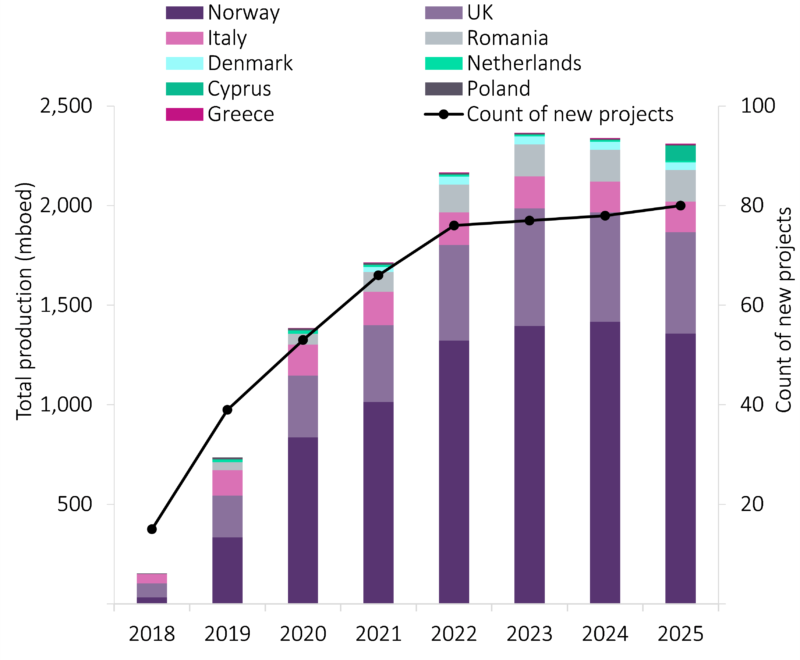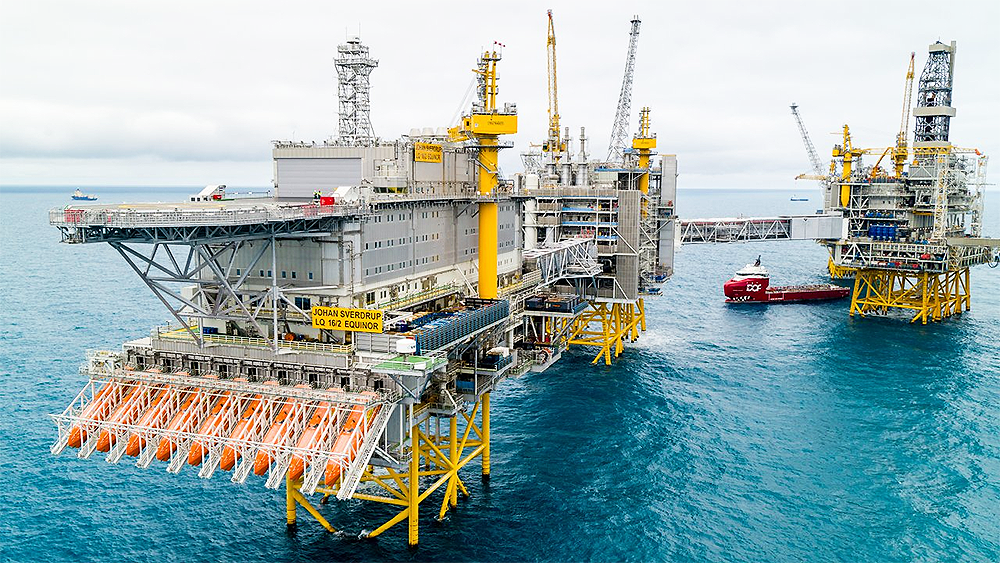North Sea Projects Set to Drive European Oil & Gas Employment Opportunities
As the home of the North Sea and some of the world’s largest operators, Europe is one of the world’s most active and fruitful territories for Oil & Gas production.
Oil production set to rise in Europe
Over 80 new Oil & Gas projects starting by 2025 in Europe

Upcoming projects and production in Europe, 2018 to 2025, Source: GlobalData Upstream Analytics
North Sea production leads the way
Norway dominates the project landscape

These projects are set to increase oil production over the next few years, compensating for the declining production from existing fields, allowing Norway’s output to remain stable.
The future of European gas production
Demand for new UK Oil & Gas skills on the rise
The future of Oil & Gas production looks positive in the UK, as the industry will require an estimated 25,000 new workers by 2025, according to the latest report from OPITO.
Meeting the changing demands of Europe’s Oil & Gas market
With the demand for technical projects and technology skills on the rise in the industry, Europe’s Oil & Gas operators are set for increased competition for highly-skilled talent.
“As Oil & Gas operators diversify their approach to production and exploration, we at First Recruitment are witnessing a higher demand for more technical and technology based skills, with more emphasis being placed on experience in specialised fields such as pre-FEED’s and subsea.”
Hiring Oil & Gas workers across the North Sea and Europe
We understand the competitive market that North Sea and European Oil & Gas businesses operate in, with high demand for skilled workers across the industry and pressure to find the right talent for projects.
At First Recruitment Group, we have over 20 years of experience in providing skilled Oil & Gas workers across Europe, working hard to source the correct talent for our clients hiring and project needs.
If you are looking for a recruitment agency in Europe, that offers full compliance and a local presence, contact our Client Development Manager, Mark Wallace, on +44 (0)1925 912180 or email mark.wallace@firstrg.com.
For more information on our hiring capabilities in Europe, click here to read about our European recruitment agency.
